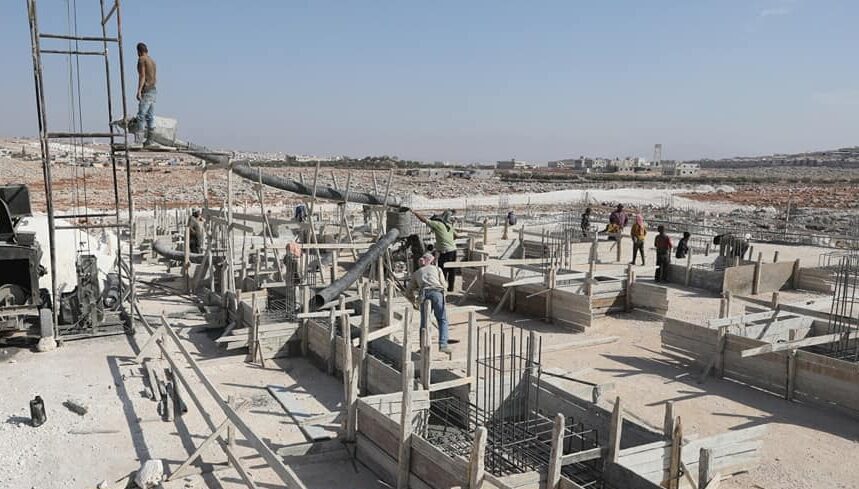
The economy in Idlib has gone through a rough patch recently as prices of commodities and utilities rise. The Minister of Economy, in the Syrian Salvation Government, Mr. Abdul Aziz, provided his insight in an interview conducted by L24. He covers several topics regarding the current situation and what the Ministry has planned for the near future.
L24: Recently, the gas prices went up internationally, and we have seen that locally as well. Some say that the government did not reduce the gas price but reduced the weight of a full gas canister by 1kg, what’s the reason?
Mr. Abdul Aziz: The main reason for this decision was to standardize the weight of gas in the gas canisters between the two liberated areas [Idlib (Syrian Salvation Government) and Northern Aleppo (Syrian Interim Government)]. In Northern Aleppo, most gas canisters weigh less than those in Idlib, hence the price difference. We decided to reduce the weight [from 10kg to 9 kg] in the canisters in our areas to match the price of canisters in Northern Aleppo. The price of gas in the Liberated Areas are subjected to the changing gas prices in the international market.
L24: The ministry decided to change the circulating currency in Idlib province from the Syrian Lira to the Turkish Lira. At the moment the Turkish lira is experiencing loss of value against the dollar, how will it affect our region?
Mr. Abdul Aziz: Currently, the Turkish Lira is experiencing a small loss of value, but it will only be for a short while and its effects will also be of small note. The Turkish currency is backed by a strong economy and the decrease in value will increase Turkish exports, and as such, will stabilize after a short period. Likewise, the individual incomes will eventually be readjusted in accordance to the currency value loss. The Ministry’s decision to shift from the Syrian Lira to the Turkish Lira is to maintain stability in trading after the Syrian Lira had completely collapsed. Syria does not produce any exports or export natural resources any more. Natural resources, like phosphate or liquid gas, have been repossessed by Russia.
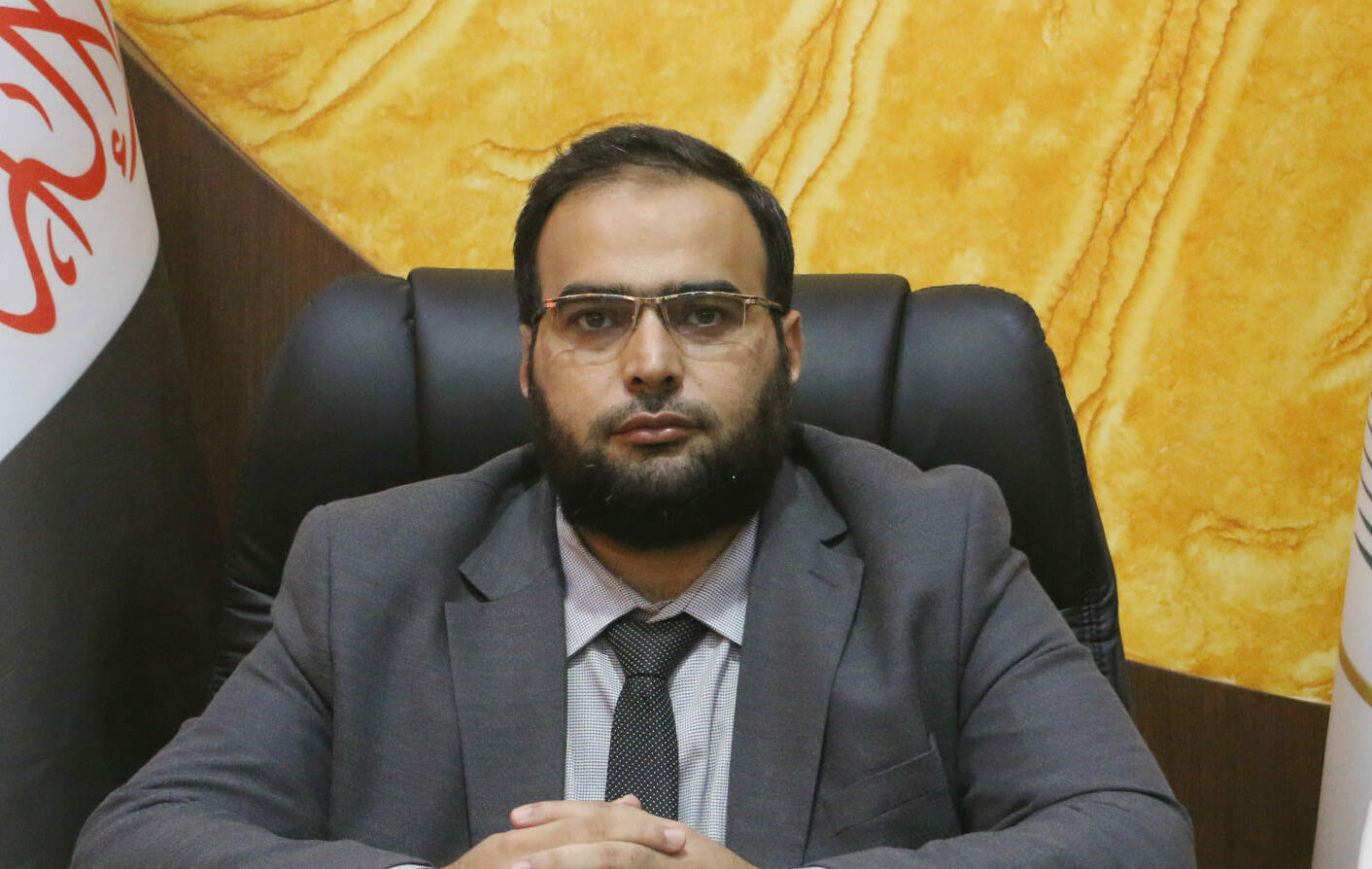
L24: What plans do the government have to economically improve the situation in the liberated areas?
Mr. Abdul Aziz: We, in the ministry, have several plans which we are currently working on. For starters, we must evaluate the situation because after the regime and occupation campaign we have lost a lot of land and therefore, a lot of resources. We lost more than half the farmlands and many manufacturing facilities in rural Idlib and Aleppo. We lost half of the land, but the population remained the same (or increased), this has burdened the already poor infrastructure, and it became a huge economic issue.
Therefore, after the military campaign, the ministry developed a multi-faceted plan.
Firstly, we provided and improved infrastructural services. We have worked on paving the highways and main roads and prioritized the process according to the available resources.
Secondly, we have supported the construction of residential buildings. We have replicated the “New Sarmada” concept to accommodate IDP’s and the increasing demand for housing. This, in turn, increases job opportunities and decreases unemployment.
Thirdly, we have repaired and connected the electrical grid which was a leap forward to the region. It reduced the cost of productions in general, especially products that rely on electricity, and reduced the cost of irrigation for agriculture.
Fourthly, the Ministry has encouraged the establishment of industrial zones. The first one was established in Sarmada, it should provide around 10.000 job opportunities.
There’s also a project by the ministry to ensure food security, in cooperation with the Ministry of Agriculture, through subsidizing farmers, this will also increase job opportunities.
These previously mentioned integrated projects are called the “Creating a Suitable Environment for Investment” project.
The Ministry was previously asked in a press conference about the establishment of residential areas, were they tantamount to keeping the displaced in a status quo of ‘displacement’ and were they, in, fact a demographic change in the area. The Ministry’s answer is that the project doesn’t have demographic change in mind, but rather, it’s to eliminate improvised and randomly placed camps and to create a good living environment that is resistant to the weather conditions.
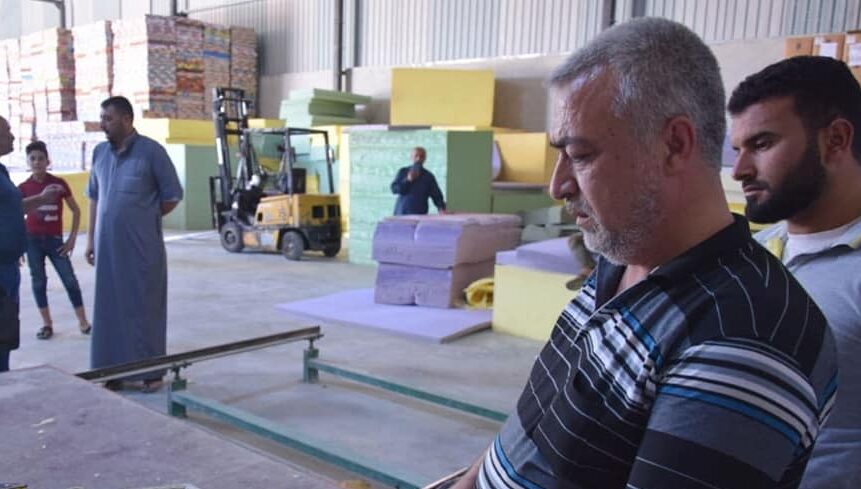
L24: Do you receive any international financial support for the Ministry’s projects or are they self-funded?
Mr. Abdul Aziz: The [Humanitarian] organizations do not support the ministry financially, there’s cooperation between the Ministry of Development and these organizations wherein the Ministry supervises their work. As for the ministries themselves, they use their own resources to fund their projects. The Ministry encourages investment of funds, and it has been requested, many times, that we establish a banking system. For example, when a developer wishes to develop a residential area, but the civilians aren’t able to pay the full price of a house, they are then able to take loans to pay in installments.
L24: How did COVID affect the economic situation in the liberated areas?
Mr. Abdul Aziz: In the first year of COVID it didn’t reach our region so there were no real effects. It’s true that the world trade experienced some weakness and stagnation. It didn’t really affect our region because our region experiences a form of economic siege. Today and after the virus spread on a large scale it has increased the suffering of the people in the region and affected the economy negatively. Many resources have been redirected towards the health sector to deal with this virus. We weren’t able to enforce a complete lockdown, but we have enforced some procedures. Complete lockdown is impossible to enforce as the largest percentage of the civilians are day-laborers, if they were forced to remain home the situation in our region would deteriorate significantly.
L24: Do you have any foreign investors interested in investing in the liberated areas?
Mr. Abdul Aziz: Naturally, there were a number of investors interested, some of them even visited from Turkey where they toured our region and looked at some investment opportunities. Our focus is on Syrian traders and industrialists that are outside Syria, in Turkey, Egypt and elsewhere. There are also investors in the regime areas that wish to flee oppression, a number of them have come to search for investment opportunities in the industrial zone.
L24: What are your recent achievements in the liberated areas?
Mr. Abdul Aziz: As the Ministry of Economy, we have a number of achievements. The most recent one is the establishment of Bab Al-Hawa Industrial City, where we have about 13 operating facilities, and all of this generates job opportunities.
On the organizational level, we have been working for three years to complete the organizational process and the legalization process of the Ministry, as the number of employees has increased. We have developed the laboratories that examine samples of materials, all of this has reflected positively on the liberated areas.
Public bakeries supervised or owned by the ministry cover only about 20% of the region’s need. The Ministry supervises the grain process and purchases domestic wheat at prices that encourage farmers to continue farming which, in turn, maintains the food security in the region.
The Ministry is still in process of expanding itself, and we are working on issuing new laws and regulations to manage all economic matters.
L24: How has the arrival of electricity affected the liberated areas in terms of industry?
Mr. Abdul Aziz: On the industrial level, before the electric grid was reconnected, industry relied on generators that needed fuel and engine oil. The instability of the utility frequency led to some machines not working as well as when they are running on utility grid electricity. As for today with regular electricity, the industry pays as much as they consume and receives stable currents and at a lower price than generators, many expenses related to the generators are cut.
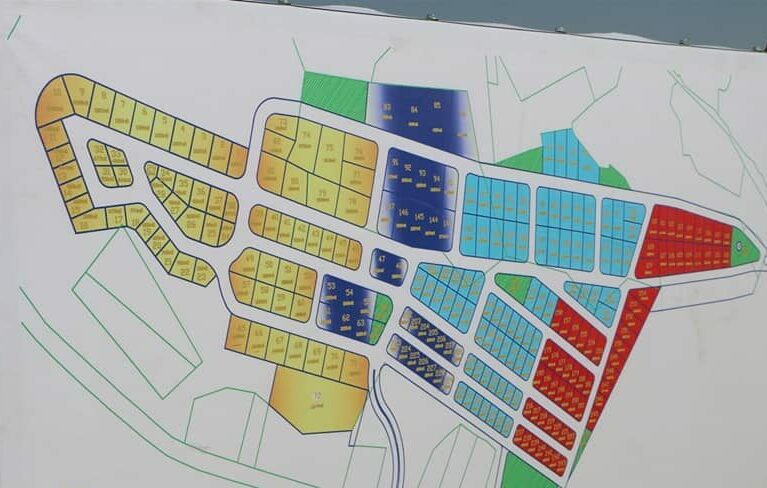
Plan for the New Industrial Zone in Idlib province
L24: Earlier you mentioned the newly built industrial zone. How well does it benefit the liberated areas?
Mr. Abdul Aziz: The industrial zone was launched on 9/13/2021, and after a short period, half the industrial zone was leased out. As for the benefits for the liberated areas, it will increase employment opportunities. Electricity will soon be connected to this area, and we will see factories commencing production.
L24: Does your Ministry cooperate with the Northern Aleppo liberated areas? How far does this cooperation go?
Mr. Abdul Aziz: We have no cooperation with them.
L24: What are the future plans of the ministry of economy for the liberated areas?
Mr. Abdul Aziz: The economic plan is not limited to the ministry, but rather is at the governmental level, as it includes all aspects; service, economic, agricultural and other aspects.
As the Ministry of Economy, we are implementing the part concerned with us. The plan in general for the government is a continuation of the previous plans, which is to create a good environment for investment and secure job opportunities. This means continuing with infrastructure projects and services as well as implementing policies to support local products in order to encourage farmers to farm and industry to produce.
The most important thing we are working on in the next stage is to study the issue of import. Our imports far exceed our own production capacity, and we must establish facilities to reduce import. There are many strategic projects that we are studying and working on in order to establish these facilities, such as cement, sugar and metallurgy. We are also working on securing facilitation of processes to export our products.
L24: How do you see the economic situation in the next 5 to 10 years?
Mr. Abdul Aziz: The economic situation is linked to the political situation, but during the period of relative stability that the region witnessed in the previous period, we were able to make great strides in this regard, and everyone noticed the projects and prosperity that the region is experiencing.
Of course, this stability perturbs the regime and its allies, so every once in a while, it tries to bomb industrial facilities and areas to destabilize this relatively stable state which we enjoy.
Our area is generally undeveloped, and it needs to be developed because of what it has suffered previously from marginalization by the criminal regime, and therefore it is a fertile environment for investment. However, all of this depends on the relative stability in which we live, and this is a great challenge for us and an incentive for the people to work, invest and progress.
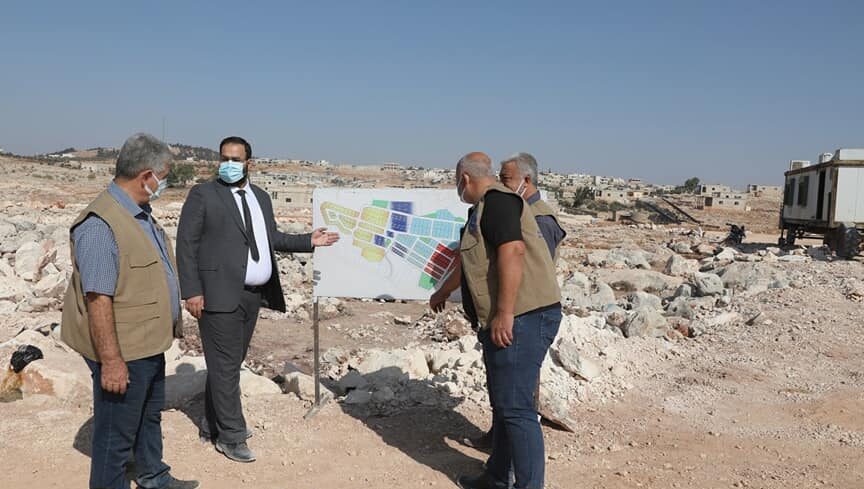
L24: How does your ministry deal with the overwhelming numbers of unemployed citizens?
Mr. Abdul Aziz: We are working to secure job opportunities through two approaches. The first approach is for people who are able to work, but they do not find an opportunity. The other approach is for people who want to work but are not able, these people need to be qualified first through qualification programs and vocational programs, then they should be ready to enter the labor market.
Within our Ministry we have a Department of Occupational Trades Regulation. This department worked to organize occupational trades in the liberated areas, where approximately five trades were organized. After organizing these trades into associations, training programs will be launched to match the labor market’s needs.
Thus far, we have not launched any training programs. We are waiting for the organization of occupations by the Department of Occupational Trades Regulation to determine the needs of the market before we provide the training.
L24: The liberated areas are mostly farmlands, how much does the economy rely on agriculture?
Mr. Abdul Aziz: We do not have accurate statistics. It is true that we have many agricultural lands, but they do not cover the total needs of the region. The lands do not even cover the consumption of the region. There are plans to change the agricultural structure by transforming fruit-tree farms that are surplus in production and transforming them into crop farms. In the end, the farming culture must change to accommodate the needs, and the Ministry of Agriculture is responsible for the matter.






